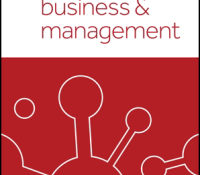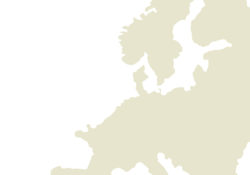tandfonline.com har udgivet en rapport under søgningen “Teacher Education Mathematics”: ABSTRACT ABSTRACT Why do some schools bring forth high achievement levels, whereas others do not? To understand the mechanisms behind school success, one must examine schools as organizations and the social relations and interactions among their members. By integrating the literature on educational effectiveness and sociological institutionalism, this article presents a study of four successful and four failing schools in Sweden regarding the impact of schools’ internal organization on student achievement. The results demonstrate that the two types of schools have distinct organizational characteristics, which show significant stability over time. Linking organizational characteristics and student outcomes, we argue that (a) the varying social reality of teachers and principals among the two types of schools fosters different types of actions and… Continue Reading →
Like this:
Like Loading...
eric.ed.gov har udgivet: An institutional self-study at a Hispanic Serving Institution (HSI) explored factors thought to impact students’ decisions to persist in science, technology, engineering and mathematics (STEM) fields of study. This self-study is presented as a model first step for Institutions of Higher Education interested in launching efforts to improve STEM education and STEM student success and persistence. A methodology combining qualitative and quantitative analysis approaches was used to examine different aspects of the overarching research question, “Why do undergraduate students leave college STEM fields of study?” A quantitative review of institutional data was used to identify four particular gaps in student persistence and success in STEM fields of study at Texas State University. An online survey and a focus group guide were developed based on existing but more… Continue Reading →
Like this:
Like Loading...

tandfonline.com har udgivet en rapport under søgningen “Teacher Education Mathematics”: Abstract Abstract Fractal metaphor could be introduced to organization studies to elaborate on those organizational concepts that call for self-organization, self-similarity, similarity persistence in different organizational levels, symmetrical expansion, homogeneous discipline and quality, omnipresent controlling measures, and growth, as well as the organizational processes and procedures that require recursion. Organizational power is an abstract entity which could precisely be explained via a metaphorical fractal. Thus, Sierpinski Triangle, a familiar geometrical fractal has been applied in the paper with the purpose to unfold the fractal characteristics of the power within organizations. Such an approach presumes power characteristics as hierarchical, pyramidal, distributive, recursive, accumulative, dependent, comparative, and unequal. The discussions through the paper could contribute to future organization theorists to form an… Continue Reading →
Like this:
Like Loading...
tandfonline.com har udgivet en rapport under søgningen “Teacher Education Mathematics”: Abstract Evidence-informed policy and practice has been a trend as part of an effort to increase the use of research to improve education at all levels. In many countries, knowledge-brokering initiatives were established to stimulate links between research, policy, and practice. Drawing on a mapping of initiatives in seven countries, this article describes different organizational designs, and discusses potential dilemmas these might imply for the realization of these organizations’ roles. Given different interests involved, the article shows that organizational design is crucial for enhancing legitimacy. Findings indicate a trend toward locating the knowledge-brokering function in a combined policy–science logic. Link til kilde
Like this:
Like Loading...
eric.ed.gov har udgivet: Given the policy goals of course graduation requirements (CGRs), this study first tests the hypothesis that CGRs promote academic excellence and equity by both improving student performance (“productivity hypothesis”) and reducing the gap between student groups as defined by academic ability, race/ethnicity, and socioeconomic status (“equality hypothesis”). This study also assesses whether and how schools differ in CGRs’ effects by testing the following hypotheses that CGRs affect student outcomes more positively in schools with (1) higher concentration of advantaged peers (“school structure hypothesis”), (2) greater academic/instructional capacity (“academic organization hypothesis”), and (3) stronger academic norms/climate (“social organization hypothesis”). This study analyzes the data from the High School Longitudinal Study of 2009 (HSLS:09) that provide the information on high school CGRs in several academic subjects at the school… Continue Reading →
Like this:
Like Loading...


